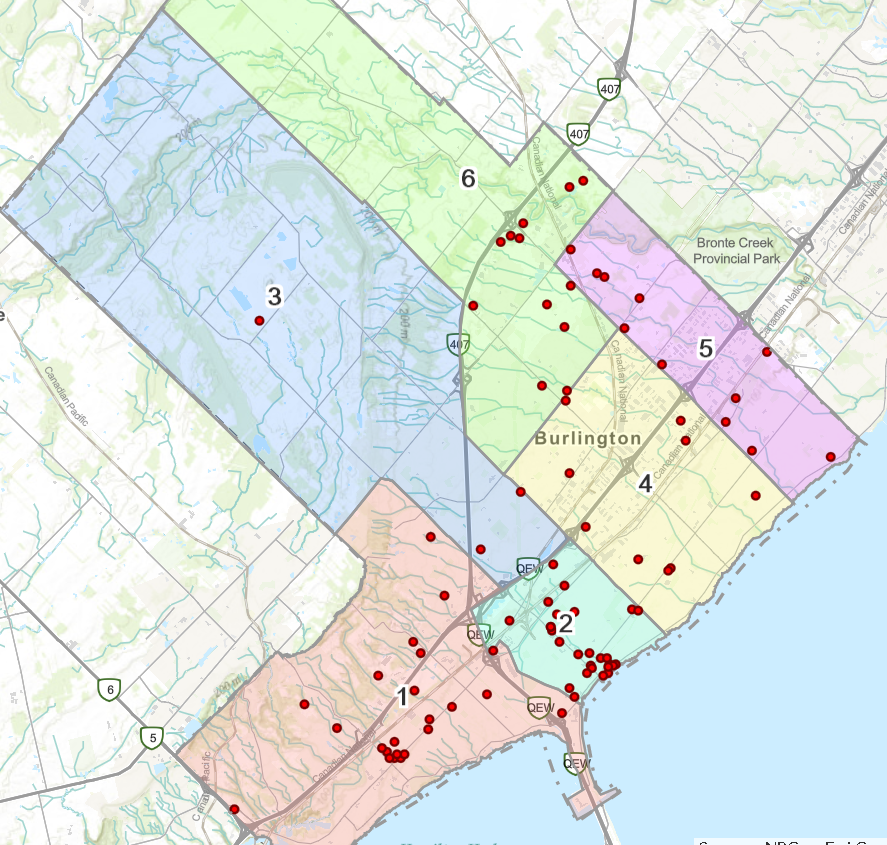 By Staff
By Staff
June 16th, 2023
BURLINGTON, ON
The Ontario government is expanding strong mayor powers to the mayors of 26 large and fast-growing municipalities that have committed to a housing pledge as part of the province’s work to build 1.5 million homes by 2031.
The announcement was made by Steve Clark, the Minister of Municipal Affairs and Housing, during today’s meeting of the Ontario Big City Mayors. Strong mayor powers for Toronto and Ottawa took effect in the Fall of 2022 and will be expanded to mayors in the 26 additional municipalities on July 1, 2023.
“Municipalities are critical partners for our government as we help communities get shovels in the ground faster and work to build more homes,” said Minister Clark. “By adopting ambitious and absolutely necessary housing pledges, these 26 municipalities have demonstrated they understand the importance of that target, and we are ensuring they have the tools they need to succeed. We welcome housing pledges from other municipalities to help reach our goal of 1.5 million homes by 2031.”
Strong mayor powers offer tools to help heads of council cut red tape and speed up the delivery of key shared municipal-provincial priorities such as housing, transit and infrastructure in their municipalities. These enhanced powers will also bring increased accountability for local leaders, while checks and balances maintain the important oversight role of councillors. For example, council may override the mayor’s veto of by-laws or budget amendments with a two-thirds majority vote.

Will the Escarpment be at risk if new Strong Mayor Powers were put to use?
Strong mayor powers and duties include:
• Choosing to appoint the municipality’s chief administrative officer
• Hiring certain municipal department heads, and establishing and re-organizing departments
• Creating committees of council, assigning their functions and appointing the chairs and vice-chairs of committees of council
• Proposing the municipal budget, which would be subject to council amendments and a separate head of council veto and council override process
• Vetoing certain by-laws if the head of council is of the opinion that all or part of the by-law could potentially interfere with a provincial priority
• Bringing forward matters for council consideration if the head of council is of the opinion that considering the matter could potentially advance a provincial priority
“Ontario’s Big City Mayors back the province’s goal of building 1.5 million homes by 2031, and all of our members have accepted their housing pledge in support of that target,” said Marianne Meed Ward, Chair of OBCM and Mayor of Burlington. “Different communities require different tools and approaches to address local housing needs, and strong mayor powers are one such tool that can help mayors and municipalities meet their housing targets. We’re committed to continue working with the province to build the homes our residents need.”
In the past Mayor Meed Ward has said that she sees no need for such power in Burlington.

Each red dot represents a development that is somewhere in the Planning department or at the Ontario Land Tribunal.
“Today’s announcement by the provincial government providing strong mayor powers for Ontario’s largest and fastest-growing cities comes at a time when mayors need every tool to advance work on housing pledges and meet new challenges,” said Cam Guthrie, Mayor of Guelph and past chair of OBCM. “Although strong mayor powers may not be required in all contexts to reach our collective housing goals, our citizens expect results – and tools such as this can help us achieve them.”
These measures will support municipalities as they work to meet their commitments and support the construction of the new homes their residents need and deserve.
Quick Facts
Ontario has made significant progress in tackling the housing supply crisis with a range of innovative actions to increase housing supply. In 2022, housing starts in the province surpassed 96,000 – the second-highest number since 1988 and 30 per cent higher than the annual average for the past 20 years.
That is a fact – another fact is that the province did not meet the target they had in place for 2022.
Rental housing construction improved as well, with 2022 setting a new record of nearly 15,000 starts.
The 26 additional municipalities that would be designated as part of the strong mayor framework are single- or lower-tier municipalities with a population over 100,000, or growing to 100,000 by 2031, that have submitted a housing pledge to the province.
The 28 municipalities that will have strong mayor powers as of July 1, 2023, have collectively pledged to build 1,217,000 units by 2031 – more than 81 per cent of the provincial target of 1.5 million homes.
The strong mayor by-law powers could only be used to support prescribed provincial priorities: Building 1.5 million new homes by 2031 to address the housing supply crisis, and the construction and maintenance of infrastructure, such as transit and roads, to support new and existing housing development.
Existing municipal accountability frameworks continue to apply to heads of council with strong mayor powers, including conflict of interest rules.
















While the Province professes to seek “critical partners”, it looks like they hope for “willing lackeys”, sort of like their MPPs.
The Mayor and 1/3 of council count, the rest can have the day off. Under the new powers MMW can propose housing-related bylaws and pass them with the support of one-third of councillors.Stay tuned.
This whole thing really stinks. Lends quite another meaning to “strong mayor”.
Does anyone think that our mayor, who used to regularly shout out “it’s about Democracy” ever would have agreed that this strong mayor scheme was democratic back in, say, 2017 when Goldring was mayor? I sure don’t.
I suggest people read this article linked below on just how very undemocratic this is. And remember how small Burlington council is. I’ll leave this one quote from it:
“The foundation of Canada’s political system – and of all other democracies – is majority rule. Our democratic institutions contain many safeguards to protect minorities from the tyranny of the majority. The Constitution guarantees the rights of linguistic, religious and other minorities. Many important issues require agreement between the federal and provincial governments. In some other countries, a two-thirds supermajority is required for certain types of decisions.
Bill 39 entrenches a new principle: minority rule. In doing so, it rolls back almost 400 years of democratic development premised on checks and balances between executive and legislative authority – all in the name of a narrow property development agenda masquerading as a housing affordability plan.
While giving mayors unilateral powers may appear to enhance local autonomy, mayoral action is now tightly yoked to the transitory agenda of the Ontario government of the day. Unlike strong mayors in American cities, Ontario’s new strong mayors can use their new powers only to veto and pass bills for the purpose of advancing “provincial priorities.” For Doug Ford’s Progressive Conservatives, these priorities are to build as much housing as possible, as fast as possible. But once the strong mayor powers come into force, they will exist for years to come. What might future provincial government priorities be? To what new purposes might the Ontario government’s mayoral marionettes be turned in the future? We can only guess.
Bill 39 sets a terrible precedent that will reverberate across Canada and around the world. Arguing that minority rule will be rarely used, that it can be used only in specific circumstances, or that it is required to address an immediate crisis, is a red herring. Bill 39 will erode local autonomy and normalize minority rule as a legitimate governing principle. Minority rule has no place in a democracy. Bill 39 should be repealed.“
https://policyoptions.irpp.org/magazines/december-2022/strong-mayor-powers-in-ontario-are-a-gross-violation-of-democratic-principles/
Your comment “In the past theMayor did not see the need for these powers for Burlington” was in response to Anne’s position in the election that we needed a strong Council and not a strong Mayor. Just another example of the Mayor saying whatever she thinks will advance her goals at any particular time.